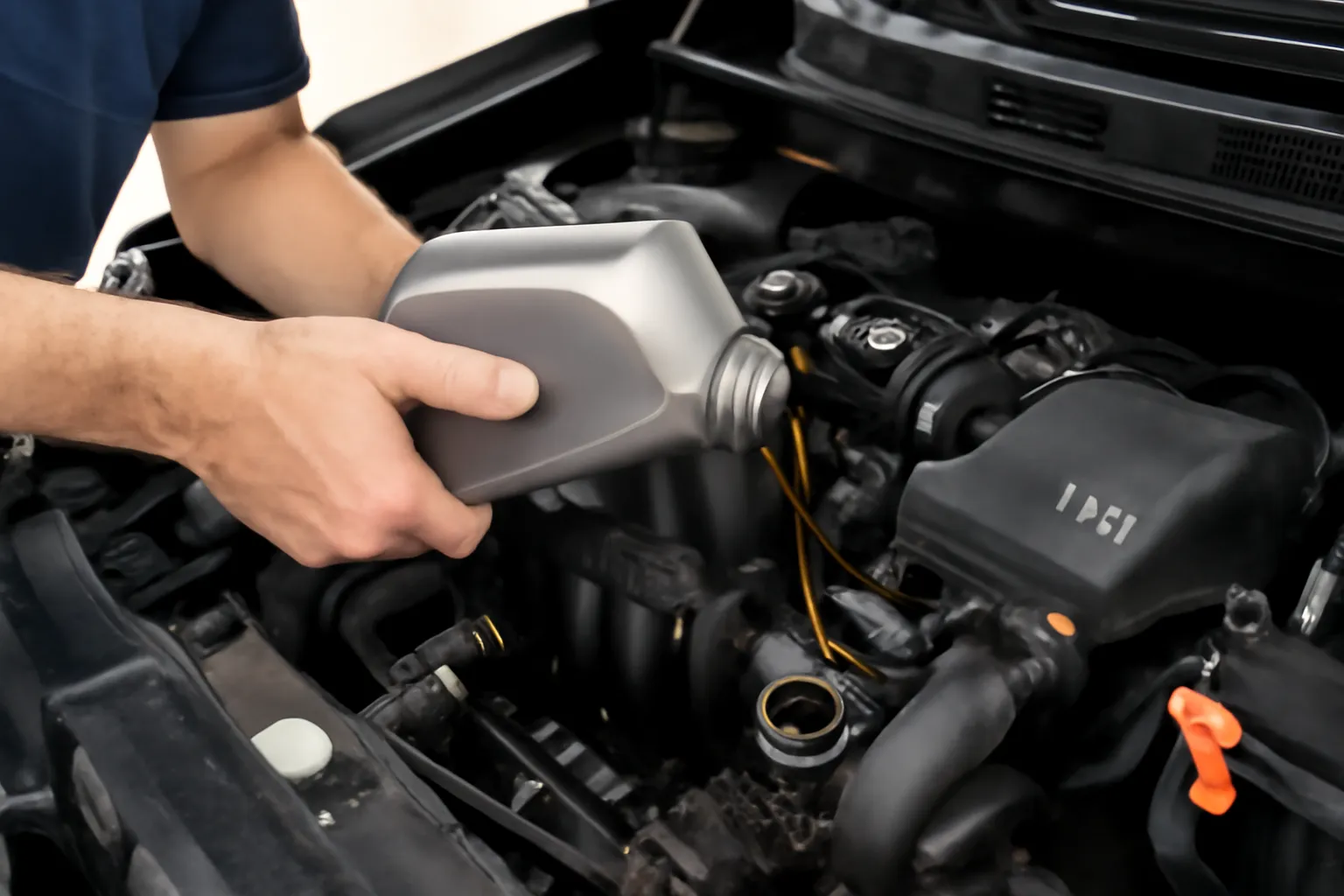How often should you change the engine oil in an LPG vehicle? Wondering about the ideal oil exchange cycle for an LPG car? Here’s everything you need to know to maintain your vehicle’s engine health.
Introduction
In today’s environmentally conscious world, LPG (Liquefied Petroleum Gas) vehicles are gaining popularity for their fuel efficiency and reduced emissions. However, just like any other vehicle, regular maintenance is crucial for optimal performance. One of the key aspects of maintaining an LPG vehicle is the timely exchange of engine oil. But how often should you replace the engine oil in your LPG vehicle? In this article, we’ll dive deep into the LPG vehicle engine oil exchange cycle, the factors that affect oil change intervals, and the overall importance of this maintenance task.
LPG Vehicle Engine Oil Replacement Cycle
When it comes to an LPG vehicle’s engine, many drivers are unsure about how frequently the engine oil should be replaced. Typically, LPG engines operate similarly to traditional gasoline engines, but there are unique considerations to keep in mind due to the nature of LPG fuel. LPG burns cleaner than gasoline, resulting in less carbon buildup in the engine. However, that doesn’t mean you can overlook the importance of regular oil changes.
Factors Influencing the Exchange Cycle
-
Driving Conditions:
The frequency of oil changes can depend on how often and where you drive. For example, frequent short trips or heavy city driving can cause the oil to degrade faster than highway driving. -
LPG Engine Design:
Modern LPG engines tend to have advanced components that can withstand extended oil change intervals compared to older models. Always refer to your vehicle’s manual for manufacturer recommendations.
Recommended Interval
The general consensus is that LPG vehicle engines should have their oil changed every 7,500 to 10,000 kilometers (about 4,500 to 6,200 miles), similar to traditional gasoline-powered engines. However, the exact interval might vary based on the vehicle’s make and model, driving conditions, and the type of engine oil used.
Why It Matters
Regular engine oil changes ensure that the engine runs smoothly, providing lubrication for internal parts, reducing friction, and preventing overheating. In LPG vehicles, even though there is less carbon buildup, the oil still plays a vital role in maintaining engine efficiency. Delaying oil changes can lead to oil breakdown, increased engine wear, and eventual damage.
LPG Car Engine Oil Exchange Timing
Understanding when to exchange the engine oil in your LPG car is crucial for maintaining engine health and performance. While the general recommendation is to follow the 7,500 to 10,000 km range, there are a few considerations to keep in mind that might adjust this cycle.
How to Determine the Right Time
-
Monitor Oil Quality:
Engine oil naturally degrades over time due to heat, pressure, and contaminants. You can use the oil dipstick to monitor the oil’s condition. If the oil looks dark and gritty, it’s a sign that it’s time for a change. -
Check the Owner’s Manual:
Each vehicle manufacturer may have specific recommendations based on the engine’s design. The oil change cycle can vary slightly between different LPG models.
Importance of Timely Oil Changes
Timing is everything when it comes to oil changes. Delaying the exchange could result in sluggish engine performance, inefficient fuel consumption, and higher emissions. Moreover, neglecting the oil change cycle might cause the oil to become too thin or contaminated, leading to engine parts not receiving proper lubrication. This, in turn, could cause irreparable damage to the engine over time.
Special Considerations for LPG Engines
Unlike gasoline or diesel engines, LPG vehicles are less prone to issues like carbon deposits and soot buildup. This means that while LPG engines generally require fewer oil changes, drivers should still adhere to the manufacturer’s recommended timing to maintain optimal engine performance.
LPG Vehicle Engine Oil Exchange Best Practices
To extend the life of your engine, it’s not enough to simply follow the oil change cycle. Adopting best practices during the oil exchange process ensures that your LPG vehicle remains in peak condition for years to come.
1. Use the Right Type of Oil
Choosing the correct engine oil is vital for your LPG vehicle’s performance. Not all oils are created equal, and using the wrong oil can damage engine components. Ensure that you use the type of oil recommended in your vehicle’s manual, whether it’s synthetic, semi-synthetic, or conventional oil.
2. Quality Filters Are Key
In addition to changing the oil, replace the oil filter at the same time. This will prevent contaminants from circulating through the engine, allowing the fresh oil to work effectively.
3. Regular Inspections
During the oil exchange process, it’s important to inspect the overall health of the engine. Check for any leaks, unusual noises, or signs of wear that could indicate deeper issues.
4. Choose a Trusted Mechanic
While DIY oil changes can save you money, professional mechanics have the knowledge and experience to ensure the oil change is done correctly. They can also identify any potential problems that might go unnoticed by the average car owner.
5. Environmental Considerations
Dispose of used engine oil responsibly. Most auto repair shops accept used oil, and it can be recycled into new oil or used for energy production. This reduces environmental harm and promotes sustainable practices.
Conclusion
Maintaining your LPG vehicle’s engine oil is essential for ensuring optimal performance, reducing emissions, and extending engine life. The right oil change cycle, proper timing, and best practices can go a long way in preserving the efficiency of your engine. By understanding the specific needs of your LPG car, you can keep it running smoothly for years. Always remember to refer to the owner’s manual for manufacturer-specific advice, and when in doubt, consult with a professional mechanic.
As the famous quote goes, “An ounce of prevention is worth a pound of cure.” Taking the time to regularly change your LPG vehicle’s oil will save you time, money, and frustration down the road.






